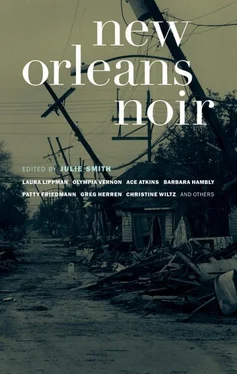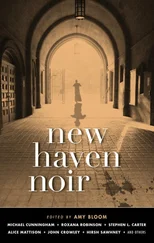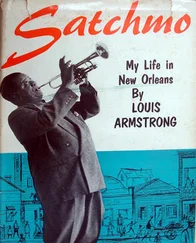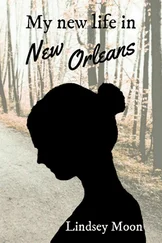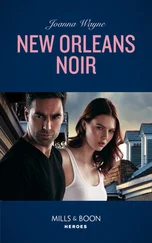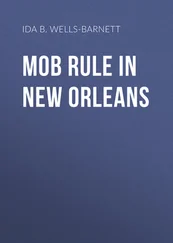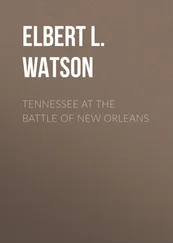Mike pulled up a short laugh. Here he sat, waiting for a man who might be dangerous, in an area people referred to as looking war-ravaged, surrounded by streets named after generals and world war heroes and scenes of battle. His father’s description of the fighting in the Argonne Forest was the most vivid — the guts and the glory.
The tic, his hand down his face. The war Mike remembered most was the one he hadn’t gone to and that his father had never seen. Vietnam. When he got drafted, his father, not a man big on physical affection, had hugged him and regarded him with the utmost seriousness and pride. His son was going off to experience what he had experienced, even if it was a different kind of war. There would still be valor and Mike would be one of the proud who fought for his country.
Two weeks before he was to leave for Fort Polk, Mike’s right foot swelled to twice its size. Tests were run, the diagnosis was gout, not so common in such a young man, the doctor said. He hobbled to the recruiting office downtown in the Customs building where he expected a delay in his orders. Instead he walked out with a 4-F.
His relief was so overwhelming that he went straight to a nearby French Quarter bar, where at 9:30 in the morning he drank one beer fast and the second one slowly and counted his blessings with every sip. It had nothing to do with whether he thought the Vietnam War was right or wrong. He hadn’t been a particularly idealistic young man. For six weeks, since the draft notice, he’d been nearly sick with fear that he was going to die.
He went home and told his father the news, keeping his face and tone emotionless. His father briefly laid his hand on Mike’s shoulder, but said nothing.
Thirty-five years later, Mike sat in the taxi he drove six nights a week, rehashing the scene from his own private war. His father’s hand seemed to have left a permanent mark of shame. He wanted to believe that the gesture had been one of sympathy and even some relief, but he believed that his father knew his son was a coward. He’d never since had an attack of gout.
Mike hoped his own son never had to face a draft or go to war. With the war in Iraq and the world so unstable, he worried about it a lot. His wife told him he dwelled on morbid thoughts. His priest told him that older parents were often more fearful for their children. He told Mike not to let fear control him. But he couldn’t tell him how. The world was a hotbed of fear. It thrived everywhere, like the mold and the cockroaches.
A man’s cry jerked Mike back into the night. He looked into the alley as the guy was shoved from under the carport. He tried to break his fall but his arm twisted under him and he cried out again as the side of his face and shoulder hit the hard rough surface left by the flood.
Four men rushed into the alley, all shouting in Spanish. One kicked the guy, whose ass was still up in the air, onto his back. He raised his arms weakly as if to ward off what he knew was coming. They were all over him — no more shouting, only the sounds of the punches against his body.
As soon as it started, Mike swung the cab door open. He rushed into the alley. “Hey,” he called, “hey, stop that!”
At the sound of his own voice, he hesitated.
“Hey!” he yelled again, and began moving forward. “Hey!”
He had their attention. The flurry of blows stopped and the four of them turned toward him.
“Let him go!” He went another couple of steps.
The guy tried to raise himself on an elbow. One of the men shoved him down.
“Mikey.” The guy sounded far away.
Mike took another step and stood his ground. “Let him go. Now!” No one made a move. “Comprende?” Mike yelled at them.
One of the men stood and Mike saw that he held something close against his thigh. He thought it was a gun. He froze. The man lifted his hand, and enough light from the carport caught it that Mike saw the blade clearly. Holding the knife at waist level, the man came toward him. He spoke hard, rapid Spanish and gestured with his free hand. He was telling Mike to go, no doubt about it, and when he thrust the knife forward and picked up his speed, Mike turned and ran back to the cab. He vaguely heard the guy on the ground calling, “Mikey, Mikey,” so far away now. Mike gunned the engine. The car slid a little on the dusty street and covered four blocks before a thought crossed his mind. He slammed on the brakes at Canal Boulevard.
His heart was pounding, his throat almost closed. He stared at the cab’s radio, not a blip from it all night. It went in and out; his cell phone was useless. He was alone, completely alone, an entirely new way of being alone, and he made a choice.
He took a deep breath as he stepped out of the taxi. He went around to the trunk. Wrapped in old rags, the gun sat deep in the wheel well beside the spare. Mike unwrapped it, put the rags back in the wheel well, and replaced the cover. He got in the taxi and drove to the Argonne alley.
The four men in the alley all turned when Mike drove up. He didn’t see his passenger. He killed the engine and pocketed the keys as he got out of the cab. He held the gun pointed at the men. As he walked toward them, he asked where the other man was. He got close enough to see that the men were standing around a pool of blood that had soaked into the crust covering the alley.
“What did you do to him?” he demanded.
They were mute, staring at him, maybe afraid of his gun, maybe not. He could see their hands, empty, no knife showing.
“Where’s the man?” Mike repeated.
“El hombre,” one of them said.
“That’s right, el hombre. Dónde está el hombre?”
They all shrugged. One of them said something in Spanish Mike didn’t understand.
“Do you speak English? Doesn’t anyone speak English? Habla inglés?”
They stood there.
“Come on,” Mike said, “You have to know something. Did he walk away? Did you kill him?” He thought a moment. “Muerto? Hombre muerto?”
This got them very agitated. They spoke among themselves, too fast for Mike to understand anything other than a word here and there — hombre, casa, pistola.
“Hey!” Mike waved the gun and took a step toward them, but he didn’t want to get so close that they could jump him. They stopped talking and looked at him. He looked back. Hard. He didn’t know what to do. If he stared them down, maybe they’d think he was dangerous, not desperate.
What seemed like a long time went by. Mike finally said, “If you killed him, I’ll kill you.” He hadn’t known what he was going to say, but in that moment he thought he had it in him to shoot every one of them.
The tallest one spread his hands. “No,” he said, “we don’t kill him.”
“Then where is he?” The man dropped his hands. Anger began to rise in Mike. “You speak enough English to know the word ‘kill.’ How about this? You don’t tell where he is, I’ll kill you.”
The Mexican spread his hands again, his gesture of supplication. “Not so much English.”
“Bullshit! Where did he go, you creeps?” With his free hand he pointed down the alley. “That way?” None of them looked. “That way?” The opposite direction. “That way?” He pointed at the house. “La casa?”
“Sí.” The tall man nodded vigorously, “La casa.”
“Buncha dumb Mexicans,” Mike muttered.
He started toward the house, moving sideways so he could see them. On his way, he picked up a Coleman lantern that sat on an ice chest and walked around a high wood fence that leaned on the carport.
The back door of the house had been removed. When Mike held up the lantern, he could see straight through the gutted downstairs and out the front door, which stood wide open. The house wasn’t large, and a quick walk through the lower floor did not reveal a body or his passenger bleeding to death from a stab wound.
Читать дальше
